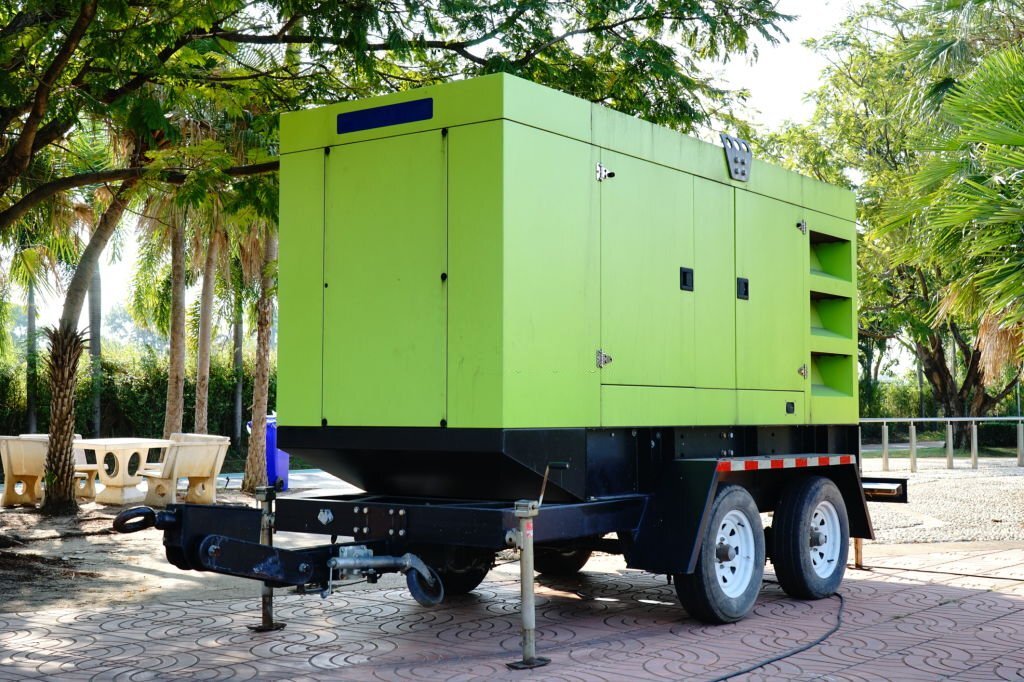
In industries spanning construction, mining, agriculture, emergency services, and more, the seamless operation of heavy equipment is essential for progress and productivity. At the heart of this functionality lies a critical component: power generators. Power generators serve as the lifeline that provides energy to power and drive heavy machinery, enabling critical operations in remote, off-grid, or emergency situations. In this extensive 8000-word article, we delve into the intricate mechanisms through which power generators supply energy to heavy equipment across diverse industries. From diesel and gasoline generators to renewable energy sources, we explore the applications, benefits, and technologies that underscore the pivotal role of power generators in powering the machinery that drives progress.
Powering Mechanisms: Understanding the Basics
Power generators supply energy to heavy equipment through a series of mechanisms that ensure a continuous flow of electricity to drive machinery. These mechanisms involve both traditional and modern technologies.
1. Internal Combustion Engines: In conventional power generators, internal combustion engines burn fuels like diesel, gasoline, or natural gas to generate mechanical energy, which is then converted into electricity using an alternator or generator head.
2. Alternator or Generator Head: The alternator or generator head converts mechanical energy into electrical energy through electromagnetic induction. As the engine drives the alternator, it produces an alternating current (AC) that powers the equipment.
3. Inverter Technology: Inverter generators use advanced electronics to convert the AC produced by the alternator into direct current (DC) and then back to stable AC power. This technology ensures clean and consistent power output, suitable for sensitive electronic equipment.
Applications Across Industries
Power generators find applications across a wide range of industries, where they play a critical role in ensuring the operation of heavy equipment.
1. Construction Industry: Power generators provide energy to construction equipment like cranes, excavators, and concrete pumps, enabling tasks such as lifting, digging, and concrete placement.
2. Mining Operations: Mining machinery, including haul trucks, drilling rigs, and conveyors, rely on power generators to facilitate the extraction, processing, and transportation of valuable resources.
3. Emergency Services: Fire trucks, search and rescue vehicles, and mobile medical units depend on power generators to power essential equipment during emergency response and disaster relief efforts.
4. Agriculture and Farming: Tractors, irrigation systems, and harvesting equipment are powered by generators, enhancing crop cultivation, harvesting, and irrigation.
5. Utilities and Infrastructure: Power generators maintain essential infrastructure such as water pumps, wastewater treatment plants, and telecommunication towers, ensuring uninterrupted services.
Fuel Sources: From Conventional to Renewable
Power generators utilize various fuel sources to generate the energy required to drive heavy equipment. These fuel sources range from conventional fossil fuels to renewable alternatives.
1. Diesel Generators: Commonly used in heavy equipment applications, diesel generators offer high fuel efficiency, durability, and a stable power supply, making them suitable for demanding tasks.
2. Gasoline Generators: Gasoline generators are versatile and offer quick startup times, making them ideal for smaller equipment and emergency applications.
3. Natural Gas Generators: Natural gas generators are efficient and produce fewer emissions, making them a cleaner alternative for heavy equipment in certain industries.
4. Renewable Energy Generators: Solar panels, wind turbines, and hybrid systems harness renewable sources to generate clean energy for heavy equipment, contributing to sustainable practices.
Benefits and Advantages
The integration of power generators into heavy equipment offers several benefits that enhance efficiency, resilience, and operational flexibility.
1. Off-Grid Operations: Power generators enable heavy equipment to operate in remote or off-grid locations where access to a stable power grid may be limited or unavailable.
2. Emergency Response: During power outages or emergencies, power generators ensure that critical equipment remains operational, enabling quick and effective response.
3. Continuous Operation: Power generators provide a continuous supply of energy to heavy machinery, allowing for uninterrupted production and operations.
4. Versatility: Generators can be customized to match the energy needs of various equipment types, making them versatile solutions for different industries.
5. Backup Power: In industries where downtime is costly, generators act as backup power sources, preventing financial losses due to equipment inactivity.
Innovation and Future Trends
As technology continues to evolve, power generators are undergoing innovations that enhance efficiency and environmental sustainability.
1. Hybrid Generators: Hybrid generators combine traditional internal combustion engines with battery storage systems, optimizing fuel consumption and minimizing emissions.
2. Microgrids: Power generators are integrated into microgrids, which combine various power sources, including renewables, to provide reliable and efficient energy solutions for heavy equipment.
3. Remote Monitoring: Advanced sensors and remote monitoring systems allow for real-time tracking of generator performance, enabling predictive maintenance and minimizing downtime.
Conclusion
The marriage of power generators and heavy equipment is a testament to human innovation and ingenuity. From powering construction sites and mining operations to enabling emergency response and sustaining agriculture, power generators are the unsung heroes that fuel progress across industries. The reliable supply of energy they provide to heavy machinery ensures that critical tasks are carried out efficiently, regardless of geographical location or the availability of a stable power grid. As technology advances, power generators are poised to continue evolving, adapting to the changing demands of industries while embracing sustainable practices and enhancing efficiency. In a world that demands consistent operation and resilience, power generators stand as a vital link between power sources and heavy machinery, contributing to the fabric of progress that shapes our modern society.

